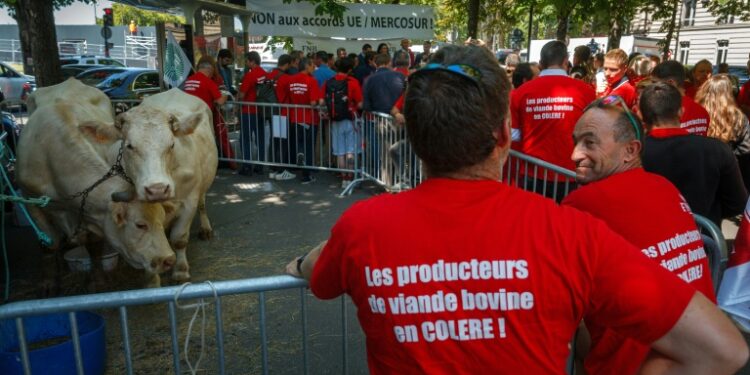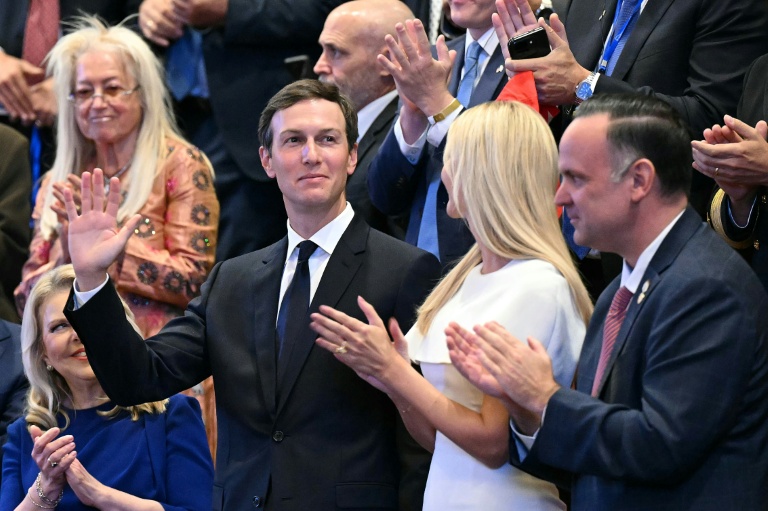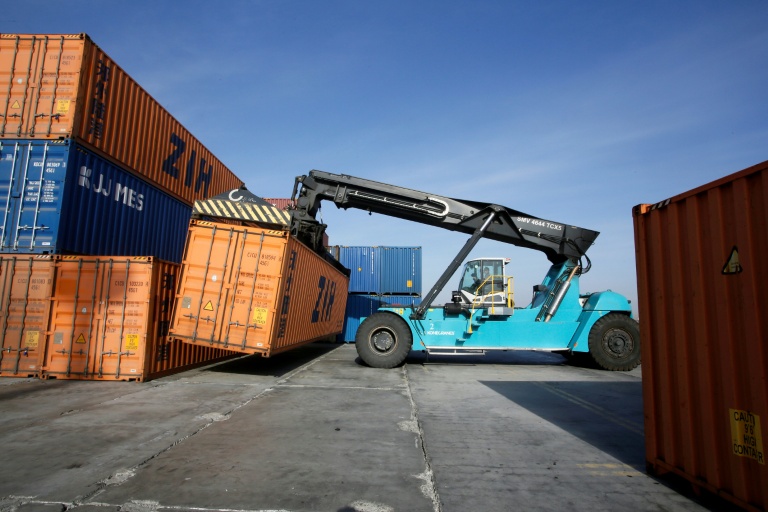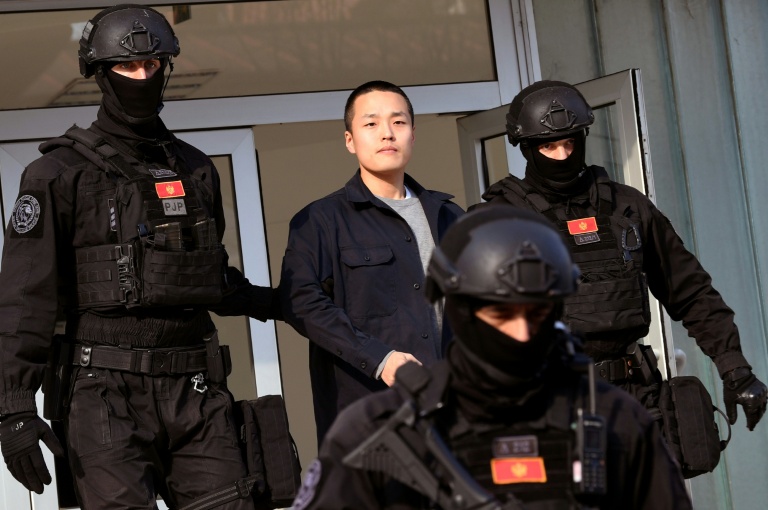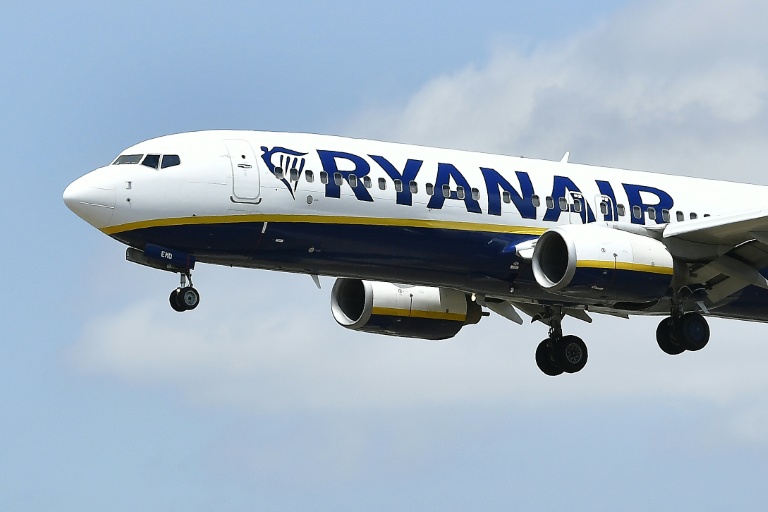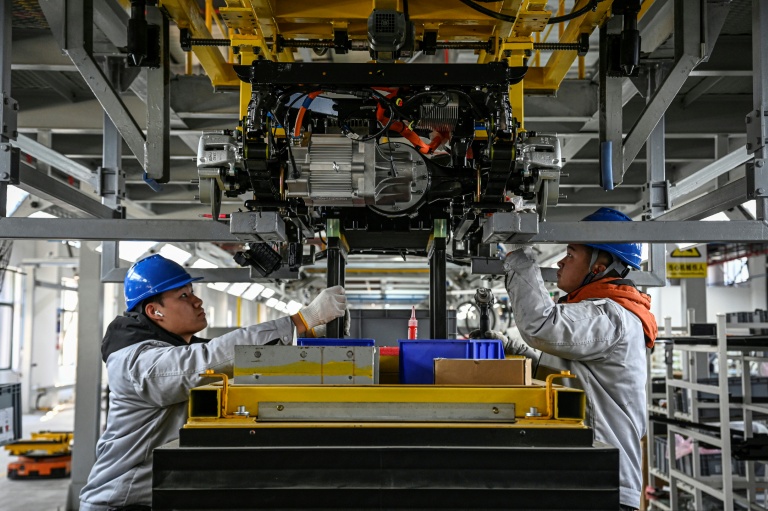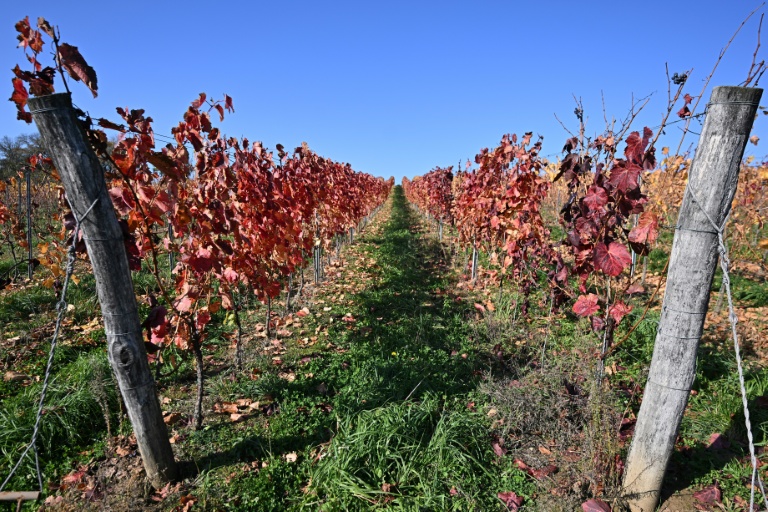Brussels (Belgium) (AFP) – The EU put forward a huge trade deal with South American bloc Mercosur for approval by member countries Wednesday, reassuring chief critic France it came with “robust” safeguards to protect farmers. The agreement to form a 700-million-customer free-trade area, the world’s biggest, is a key pillar in Brussels’ push to open new markets in the face of US tariffs — but has faced Paris-led opposition over agricultural concerns.
“EU businesses and the EU agrifood sector will immediately reap the benefits of lower tariffs and lower costs,” European Commission President Ursula von der Leyen said. The commission Wednesday gave its final go-ahead to the accord, which was struck with the club bringing together Argentina, Brazil, Paraguay, and Uruguay in December — 25 years after negotiations began. But the text needs backing from at least 15 of the EU’s 27 member nations, representing at least 65 percent of the bloc’s population — and the European Parliament — to be formally adopted.
Despite vocal opposition from some capitals — chiefly Paris, Warsaw, and Vienna — the Mercosur deal is backed by a wide majority of countries skippered by Germany. Its defenders are keen to diversify trade away from the United States — which will maintain ramped-up tariffs on the EU despite a newly-struck trade deal. “We have listened closely to our farmers and Member States,” von der Leyen wrote on X. “And we have delivered even stronger — legally binding — safeguards to reassure them and give them confidence to support the deal.” EU trade chief Maros Sefcovic said the commission hoped for approval by the end of the year.
The pact will see Mercosur countries progressively remove import duties on 91 percent of EU goods, including cars, chemicals, wine, and chocolate, which currently face tariffs of up to 35 percent. The commission estimates it will increase EU annual exports to the four-country bloc by up to 39 percent, or 49 billion euro ($57 billion), and give Europe an edge over China and others vying for influence in the region. “These are markets that haven’t opened up in this manner before to anyone, so there is a certain first-mover advantage for us,” a senior commission official said on condition of anonymity.
In return, agricultural giant Brazil and its neighbors would be able to sell meat, sugar, honey, soybeans, and other products to Europe with fewer restrictions. This raised fears that a flow of cheaper farming goods would undercut European producers.
Pan-European agriculture lobby group Copa-Cogeca has called the deal “economically and politically damaging for Europe’s farmers, rural communities, and consumers.” But the commission insisted “EU sensitivities in the agricultural sector” are well protected. For example, only a quota of beef imports from Mercosur, equal to 1.5 percent of EU production, will be subject to a preferential 7.5-percent levy. “This is about two steaks, two hamburgers, whatever your preferences are, per year, per European,” said the commission official. Additional imports will face tariffs of up to 50 percent, he added. Sensitive European products will be further shielded from “any harmful surge in imports” by “robust safeguards,” the commission said. Brussels had also already promised a one-billion-euro ($1.2 billion) “reserve” for European farmers who might be negatively impacted.
Paris sounded a conciliatory note, with government spokeswoman Sophie Primas saying Brussels had “heard the reservations” of several countries. She stressed, however, that Paris still needed to analyze the safeguard mechanism before giving its green light to the accord. Prime Minister Donald Tusk of Poland, while stressing Warsaw still opposed the deal, said Wednesday opponents had virtually no chances to block it.
The EU has sought to broaden its trade horizons, pitching itself as a reliable business partner as Trump’s tariff campaign fuels global volatility. Over the past year, it has launched trade deal talks with the United Arab Emirates and Malaysia, among other initiatives. On Wednesday, the commission also presented a revamp of its existing trade deal with Mexico, which it said would phase out remaining Mexican tariffs on EU agrifood exports, from cheese to poultry and wine, and provide access to critical raw materials. “In today’s uncertain geopolitical climate, diversifying our supply chains and deepening partnerships with trusted allies, partners, and friends is not a luxury, it is a necessity,” trade chief Sefcovic told reporters.
© 2024 AFP

